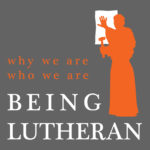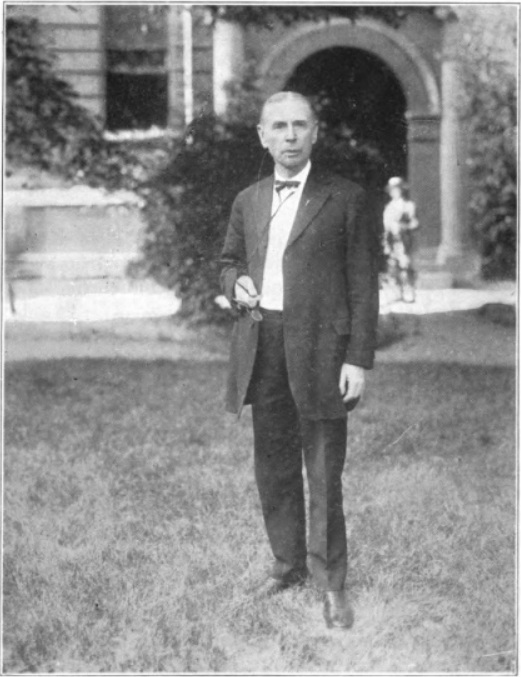
/
RSS Feed

In this episode, Brett, Brian, and Jason continue their discussion on Holy Communion with Pastor Brady Finnern. They talk about topics ranging from preaching on Holy Communion to closed Communion.

In this episode, Brett, Brian, and Jason continue their discussion on Holy Communion with Pastor Brady Finnern. They talk about topics ranging from preaching on Holy Communion to closed Communion.
Another great episode guys. This episode pointed out some very interesting differences between what you all do and what we do in the PCA.
The first difference is that we do not leave it up to the Pastor to make decisions as to who can participate in Communion. There are two concerns we have in this regard: (1) no one man should have that much power, and (2) no one man should be required to shoulder that large of a responsibility. This is why we have Sessions in which these things are discussed and decided among a plurality of elders. I grew up in Independent Fundamentalism in which the Pastor made all of the decisions and I saw how that deteriorated into a fiefdom. That form of church government is extremely efficient but also susceptible to abuse of power.
Additionally. we have the right of appeal to a higher Church court (based on Acts 15) in which a decision by the elders can be called into question and the elders can be corrected if necessary. I am not familiar enough with your form of Church government to know whether there would be a right of appeal to a higher person(s). Without that your members are left to hope that your dictatorship is a benevolent one.
Also, I have always been troubled by the requirement that a true Christian wanting to participate in communion has to subscribe to certain things because we think that “worthy” participation means we agree on every little thing. The issue for me on this issue has always been to what degree do we have to agree? It always seems that the degree ends up being arbitrary and not based on any biblical passages.
I agree that there is a prong on this issue that requires that we agree on certain things in order to participate worthily. But I don’t believe for a moment that God requires that agreement to be as detailed as most require and I don’t believe a more detailed list of things beyond what is listed in the Apostles and Nicene Creeds is required.
You guys talked about what joins us and I am sure we all agree that it is Christ in whom we are joined. We are in Christ and anyone in Christ should be allowed to participate in the Table provided they do not have anything against their brothers or sisters. Requiring more than that seems to me to be introducing schism into the body of Christ.
In the PCA, we believe that Communion is the Table of the Lord. It is not the Table of a particular Church, the Table of the PCA, or even the Table of Presbyterians. It is the Table of the Lord and we believe that He is the one who sets the invitation requirements. If we set any more stringent requirements than what He has set we are usurping Him and barring His children from this very important meal.
It is possible to eat unworthily and I think Calvin describes it here (this is found in his commentary on I Corinthians):
“To eat unworthily, then, is to pervert the pure and right use of it by our abuse of it. Hence there are various degrees of this unworthiness, so to speak; and some offend more grievously, others less so. Some fornicator, perhaps, or perjurer, or drunkard, or cheat, (1 Corinthians 5:11,) intrudes himself without repentance. As such downright contempt is a token of wanton insult against Christ, there can be no doubt that such a person, whoever he is, receives the Supper to his own destruction. Another, perhaps, will come forward, who is not addicted to any open or flagrant vice, but at the same time not so prepared in heart as became him. As this carelessness or negligence is a sign of irreverence, it is also deserving of punishment from God. As, then, there are various degrees of unworthy participation, so the Lord punishes some more slightly; on others he inflicts severer punishment.”
Here is what Calvin wrote regarding whether one is worthy and it in that same commentary on I Corinthians:
“You see here a method that is most easily apprehended. If you would wish to use aright the benefit afforded by Christ, bring faith and repentance. As to these two things, therefore, the trial must be made, if you would come duly prepared. Under repentance I include love; for the man who has learned to renounce himself, that he may give himself up wholly to Christ and his service, will also, without doubt, carefully maintain that unity which Christ has enjoined. At the same time, it is not a perfect faith or repentance that is required, as some, by urging beyond due bounds, a perfection that can nowhere be found, would shut out for ever from the Supper every individual of mankind. If, however, thou aspirest after the righteousness of God with the earnest desire of thy mind, and, trembled under a view of thy misery, dost wholly lean upon Christ’s grace, and rest upon it, know that thou art a worthy guest to approach the table — worthy I mean in this respect, that the Lord does not exclude thee, though in another point of view there is something in thee that is not as it ought to be. For faith, when it is but begun, makes those worthy who were unworthy.”
He argues that “it is not a perfect faith or repentance that is required”. I do not think he would disagree with me to assert that it is not a perfect understanding of the faith that is required either. If there was a person attending the Church in which you minister that agreed with you on everything about everything except they just could not accept that Jesus’ body is ubiquitous even though they were trying to do it, it appear to me you would ask them to not partake, ever. I find that to be so wrong and lacking in pastoral concern.
I think one of the differences that drives our different approaches to this issue is how we subscribe to a view of the Supper that is dominated by the idea of Communion being a spiritual meal and spiritual food that is absolutely necessary for the spiritual fight in which we are told we are engaging (Eph. 6:12). We believe that if we are denied these essential spiritual food groups (body and blood) we will die spiritually. We need to consume His body and His blood because, as he said, “my flesh is true food, and my blood is true drink.” (John 6:55) Feed them the body and the blood and continue to admonish them on your beliefs about it. I would be willing to bet that they would eventually come around to your way of thinking. But what if they never do? At least they were fed His body and blood on a regular basis and were provided that spiritual food they absolutely needed in order to live the Christian life.
This is why we in the PCA fence the Table by inviting “all those who profess the true religion, and are communicants in good standing in any evangelical church, to participate in the ordinance”. (PCA BCO 58-4) We also admonish people to reflect on whether they are at odds with a brother or sister and, if so, refrain this week, go reconcile with them, and come back next week ready to receive the body and blood.
As an aside, I know I have previously provide a quote from Calvin’s Institutes about the presence of Christ in the elements. He also writes the following about that same topic in this commentary:
“Here I reply, that the name of the thing signified is not applied to the sign simply as being a representation of it, but rather as being a symbol of it, by which the reality is presented to us. For I do not allow the force of those comparisons which some borrow from profane or earthly things; for there is a material difference between them and the sacraments of our Lord. The statue of Hercules is called Hercules, but what have we there but a bare, empty representation? On the other hand the Spirit is called a dove, as being a sure pledge of the invisible presence of the Spirit. Hence the bread is Christ’s body, because it assuredly testifies, that the body which it represents is held forth to us, or because the Lord, by holding out to us that symbol, gives us at the same time his own body; for Christ is not a deceiver, to mock us with empty representations. Hence it is regarded by me as beyond all controversy, that the reality is here conjoined with the sign; or, in other words, that we do not less truly become participants in Christ’s body in respect of spiritual efficacy, than we partake of the bread.”
We hold such a high view of the presence of Christ in the elements although we don’t view exactly as you do. Why should this one slight variance make it impossible for us to dine together at the Lord’s Table? I love the PCAs approach and please understand if you ever find yourself in a PCA church when we are observing the Lord’s Supper you are more than welcome to join it. We would be extremely sad if you didn’t. It is a family mean and we are in that family. Come, taste, and see with us.
The peace of Christ be with all of you and yours,
JT